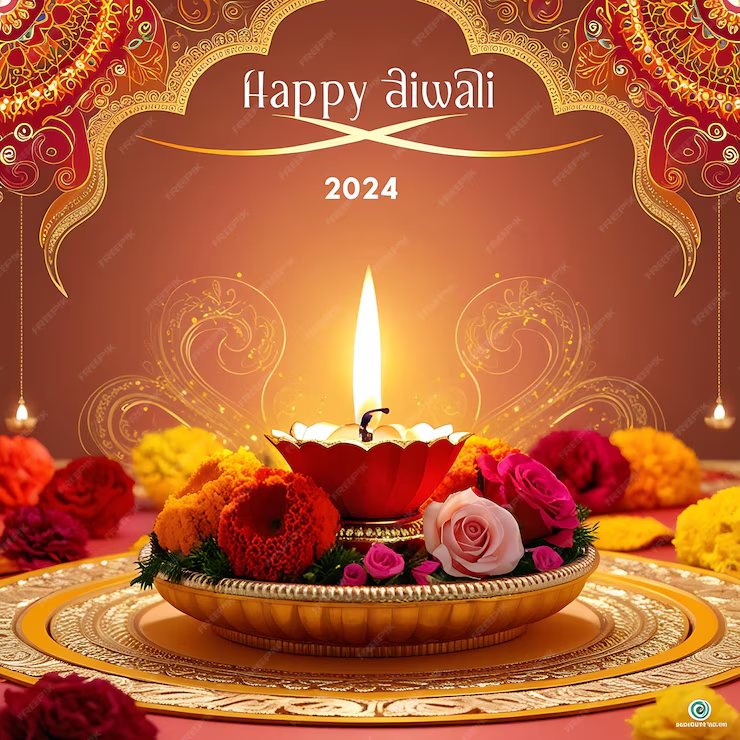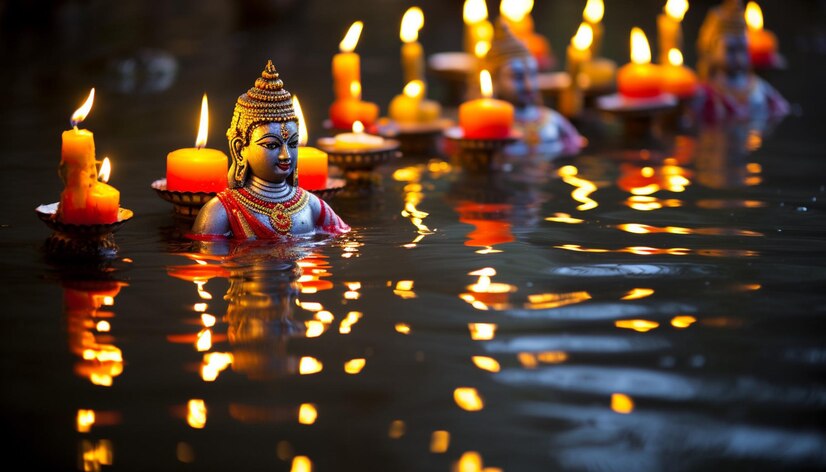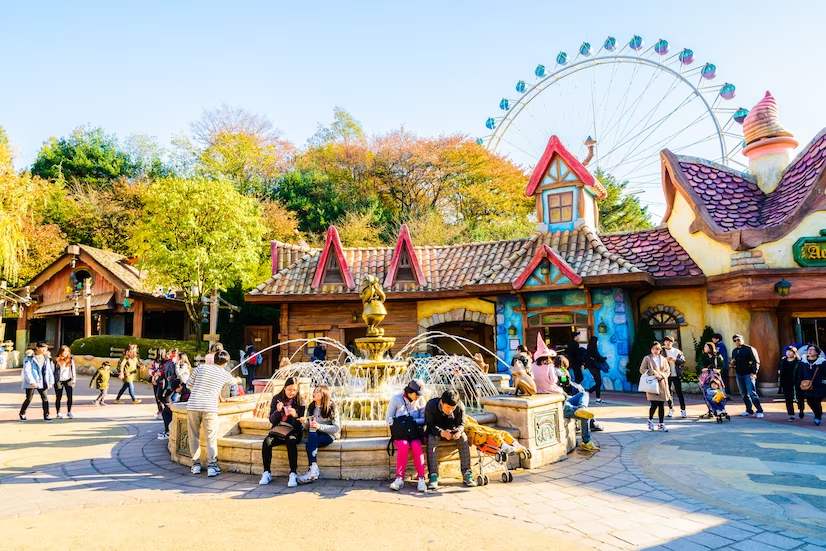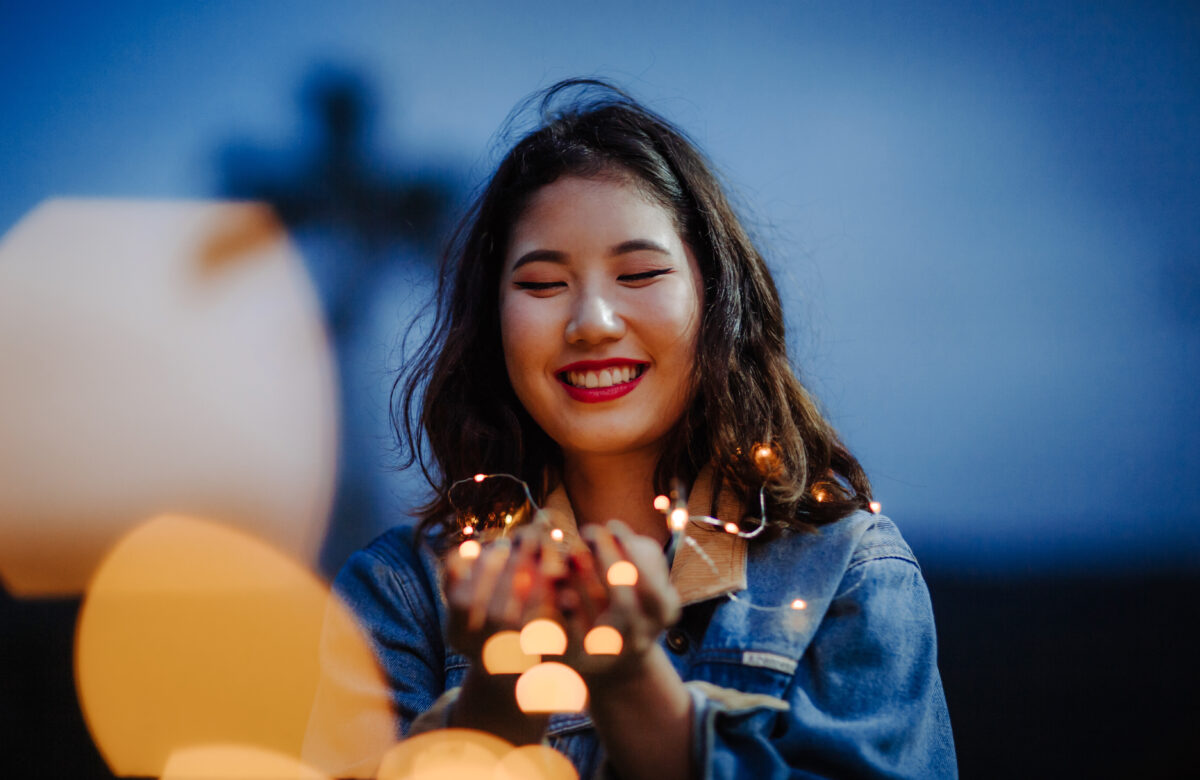- Travel and CultureCultural Etiquette and CustomsEntertainment
- October 1, 2024
- 1 Comment
- 190
“Diwali: Unity in Diversity – A Vibrant Festival of Lights Celebrated Across Faiths in India 2024”

Diwali– One of the most beloved and extensively observed holidays in India is Diwali, also known as the Festival of Lights. Many religious communities attribute deep significance to this colorful and festive occasion, with each adding its own customs and meanings to the celebration. Whether it’s the sharing of sweets, the popping of fireworks, or the flickering of diyas (lamps), Diwali unites people in a celebration of good over evil and light triumphing over darkness.
While Diwali is primarily connected to Hinduism, other Indian religious communities, such as Sikhs, Jains, and Buddhists, also find great spiritual and historical significance in the festival. Every group observes Diwali in a different manner, resulting in a stunning mosaic of customs and beliefs that capture the wide variety of the nation.

This blog will examine the various ways that various Indian religions celebrate Diwali as well as the customs, meanings, and stories that contribute to the festival’s potent symbolism of harmony.
Diwali in Hinduism: A Celebration of Victory and Prosperity
Diwali is a five-day celebration that honors the triumph of light over darkness, knowledge over ignorance, and good over evil for Hindus. diverse parts of India have diverse myths and customs around Diwali, but the basic message is always the same.
Northern India
Diwali is a festival celebrated throughout much of Northern India to commemorate the return of Lord Rama, his wife Sita, and his brother Lakshmana to Ayodhya following a 14-year banishment and the vanquishing of the demon king Ravana. The inhabitants of Ayodhya lit oil lamps, or diyas, to light their way home, according to the Ramayana. This custom is still observed today, as thousands of flickering lights are ignited in houses, temples, and streets.
Diwali is celebrated by offering prayers, or pujas, to Goddess Lakshmi, the goddess of prosperity and fortune. In the belief that Lakshmi will visit tidy, well-lit houses to bestow good fortune upon them in the upcoming year, families tidy and adorn their spaces. The night sky is illuminated by fireworks, signifying the happiness and celebration of Lord Rama’s victory.
Diwali is a time for lavish celebrations with ornate decorations, fairs, and public festivities in places like Delhi, Varanasi, and Jaipur. People are shopping for gifts for their loved ones, new clothes, and sweets, and the markets are crowded with activity.
Western India
Festival of Lightsis a big deal for commerce and business communities in Gujarat and Maharashtra. In this case, the celebration signifies the conclusion of the fiscal year, and companies frequently close their accounts and begin again. The business world marks the third day of Diwali with Lakshmi Puja, a celebration honoring the goddess of wealth and success for the upcoming year.
Furthermore, in Maharashtra, Diwali is associated with the tale of Lord Krishna vanquishing the monster Narakasura. This connection is observed on Naraka Chaturdashi, which falls one day ahead of the main Diwali celebrations.
Southern India

Diwali is observed as Naraka Chaturdashi in Southern India to honor Lord Krishna’s conquest of the demon Narakasura. To celebrate the victory of good over evil, people light lamps, wear new garments, take oil baths, and rise early on this day. The spirit of celebrating light and victory is the same, even though the ceremonies are slightly different from those in the northern portions of India.
Eastern India
In states like West Bengal, Odisha, and Assam, Diwali coincides with the worship of Goddess Kali, the fierce goddess of destruction and power. Known as Kali Puja, this festival involves offering prayers to Kali to ward off evil forces and invite blessings for protection and strength. Temples and homes are lit up with lamps and candles, and devotees offer flowers, sweets, and animal sacrifices (in some traditional practices) to the goddess.
While the form of Diwali celebrated here differs from that of the rest of the country, the overall message of light prevailing over darkness is still a central theme.
Diwali in Sikhism: A Celebration of Freedom
Diwali has special meaning for Sikhs, which stems from historical occurrences connected to the religion’s past. Diwali, also called Bandi Chhor Divas, or the Day of Liberation, is a celebration marking the release of Guru Hargobind, the sixth Sikh Guru, from the Mughal ruler Jahangir’s captivity.
Due to his criticism of the emperor’s policies, Guru Hargobind was put in prison. However, on Diwali, he and the other fifty-two Hindu kings who were also detained there were liberated from Gwalior Fort. Lamps are lit to commemorate his return to the Golden Temple in Amritsar, and Sikhs continue to light their homes and gurdwaras on this day worldwide.

Diwali is celebrated with great zeal in the Golden Temple, where followers congregate to pray, light lamps, and take in kirtan, or devotional hymns. One of the most magnificent and spiritually elevating sights in India is the Golden Temple lit up by hundreds of candles and oil lights that reflect off the nearby river. Diwali is a day of thanksgiving for freedom and justice for Sikhs, in addition to being a celebration of the festival.
Diwali in Jainism: A Day of Enlightenment
For the Jain community, Diwali marks the day when Lord Mahavira, the 24th and last Tirthankara (spiritual teacher), attained moksha or nirvana (liberation from the cycle of birth and death) in 527 BCE. Mahavira’s teachings of non-violence, truth, and renunciation of worldly desires are central to Jain philosophy, and Diwali is a time to reflect on these teachings
.
Jains observe Diwali as a time for deep spiritual reflection and prayer. The festival is marked by fasting, visits to temples, and the lighting of lamps to symbolise the knowledge and enlightenment that Mahavira brought into the world. Jain temples are decorated with lights, and special pujas are performed to honor Mahavira’s teachings.
For Jains, Diwali is less about material celebration and more about spiritual purification and the pursuit of a life based on compassion and non-attachment.
Diwali in Buddhism: Lighting the Path to Enlightenment
Diwali is significant to some Buddhists in India, especially the Newar Buddhists in Nepal and some Theravada Buddhist communities, even though it is not a holiday observed by all Buddhists. These Buddhists celebrate Diwali as Ashok Vijayadashami, commemorating Emperor Ashoka’s conversion to Buddhism following his observation of the atrocities of battle.

After embracing Buddhism, Ashoka devoted himself to spreading the teachings of the Buddha across his empire, promoting non-violence and compassion. Diwali, for these Buddhists, is a reminder of Ashoka’s transformation and the power of peace and non-violence.
Temples are decorated with lights and candles, and Buddhists offer prayers for peace and harmony during this time. In some regions, Diwali also coincides with the celebration of Kathina, a Buddhist festival that marks the end of the monastic retreat season, during which devotees offer robes and alms to monks.
Diwali, A Unifying Force of Light
Diwali is more than just a festival of lights; it is a celebration of India’s incredible diversity. Though different communities and religions celebrate the festival with their own customs, stories, and rituals, they all share the common theme of light conquering darkness and hope triumphing over despair.
Diwali unites people in a mood of joy, thankfulness, and introspection, celebrating many historical events such as the nirvana of Lord Mahavira, the return of Lord Rama to Ayodhya, the freedom of Guru Hargobind, and the enlightenment of Emperor Ashoka. Diwali serves as a reminder of the strength of compassion, unity, and the simple act of lighting a lamp to lighten the path ahead in a world that frequently feels divided.
As the lamps of Diwali flicker in homes, temples, and streets across India, they symbolise not only the victory of light over darkness but also the beauty of a nation where different faiths and traditions coexist, celebrate, and uplift one another.







1 Comments
[…] and Thailand’s Fire Festivals: An Overview of the Nation’s Passionate and “Diwali: Unity in Diversity – A Vibrant Festival of Lights How to Cheerfully Absorb Yourself in Diwali as a Foreigner October 4, […]